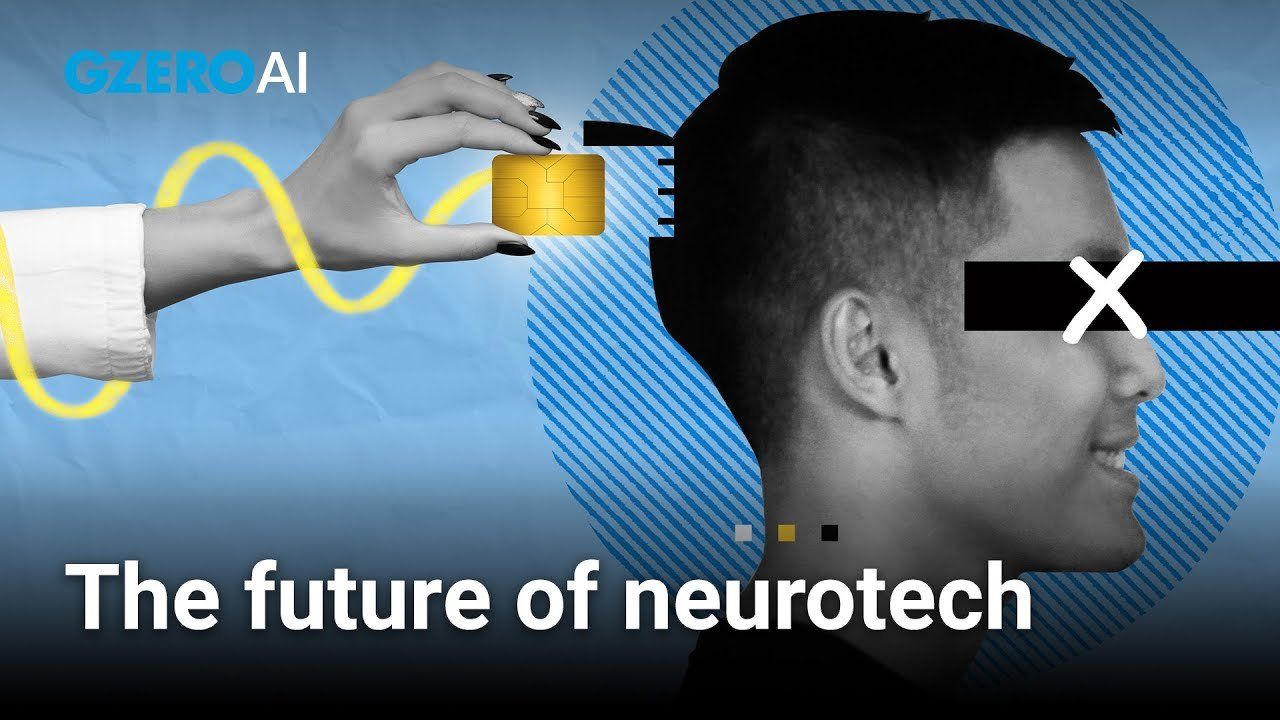GZERO AI Video
How neurotech could enhance our brains using AI

How neurotech could enhance our brains using AI | GZERO AI

So earlier this year, Elon Musk's other company, Neuralink, successfully installed a brain implant in a 29-year-old quadriplegic man's brain named Noland Arbaugh. Last week, this story got a ton of attention when Neuralink announced that part of this implant had malfunctioned. But I think this news cycle and all the hyperbole around it misses the bigger picture.
Let me explain. So first, this Neuralink technology is really remarkable. It allowed Arbaugh to play chess with his mind, which he showed in his demo. But the potential beyond this really is fast. It's pretty early days for this technology, but there are signs that it might help us eliminate painful memories, repair lost bodily functions, and allow us to maybe even communicate with each other telepathically.
Second, this brain implant neurotechnology is part of a wider range of neuro tech. A second category isn't implanted in your body, but instead it sits on your body or near it, and picks up electric signals of your brain. These devices, which are being developed, by Meta and Apple, among many others, are more akin to health tracking devices, except they open up access to our thoughts.
Third point here is that this tech is an example of an adjacent technology to AI being turbocharged by recent advances in AI. One of the challenges of neurotech has been how to make sense of all of this data coming from our brains. And here is where AI becomes really powerful. We now increasingly have the power to give these data from our minds, meaning. The result is that the technology and corporations developing them have access to the most private data we have, data about what we think. Which of course brings up the bigger point here, which is we're on the cusp of getting access to our brain data and the potential and of abuse for this really is vast. And it's already happening.
Governments are already using neurotech to try and read their citizens minds, and corporations are working on ways to advertise to potential customers in their dreams. And finally, I think this shows very clearly that we need to be thinking about regulation and fast. Nita Farahany, who has recently written a book about the future of neurotechnology, called, “The Battle for Your Brain: Defending the right to Think Freely in the Age of Neurotechnology,” thinks we have a year to figure out the governance of this tech. A year, it's moving that fast. So many in the AI debate are debating and discussing the existential risks of AI, we might want to pay some attention to the technologies that are adjacent to AI and being empowered by it, as they likely present a far more immediate challenge.
I'm Taylor Owen, and thanks for watching.
Walmart’s $350 billion commitment to American manufacturing means two-thirds of the products we buy come straight from our backyard to yours. From New Jersey hot sauce to grills made in Tennessee, Walmart is stocking the shelves with products rooted in local communities. The impact? Over 750,000 American jobs - putting more people to work and keeping communities strong. Learn more here.